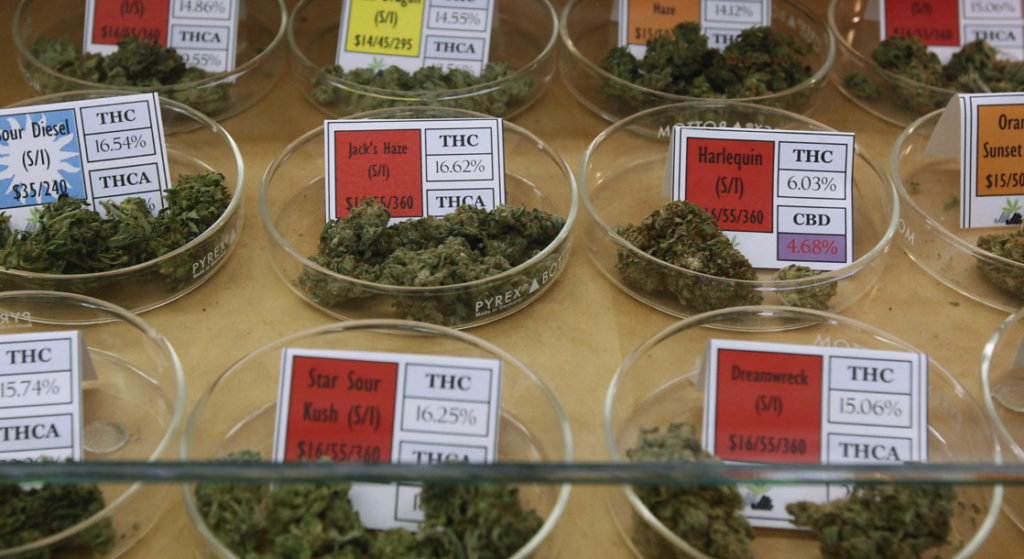The Tree of Life, Amsterdam’s first and only cannabis social club, recently filed a request for an exemption from the Dutch Opium Act to the Ministry of Health, Welfare and Sport. The club applied to grow cannabis for scientific research purposes. The association of recreational and medical users believes this can be accomplished in compliance with the Opium Act because the law states that the production of narcotics can be allowed for “medical and scientific purposes.”
“We want to study the needs of users as they know the composition of cannabis due to it is being listed and labeled,” club president Rosaria Ricci told the Dutch media. “The research is aimed to document the health of its (the club’s) members. We are also curious about the effects of controlled cultivation.”
“Those terms are not defined,” said the club’s legal adviser, Kaj Hollemans. “There is room for interpretation.”
Born Out of Necessity
In 2017, the coffeeshop culture of Amsterdam is merely a shadow of its former glory. Due to numerous toughened rules enacted during the last two decades, Amsterdam’s 1,000 coffeeshops have dwindled to about 200. Due to a lack of competition, prices are often high, and the quality is hit or miss given missing regulatory controls. The reason for Amsterdam’s decline is cannabis-hostile federal governments, which have been in power since 2002. Some members of the country’s conservative political parties, VVD Volkspartij voor Vrijheid en Democratie) or CDA (Christen Democratisch Appèl), would prefer to close down all coffeeshops which have been tolerated since the 1970s and long since established in Dutch culture. The VVD- or CDA-dominated governments have constantly tightened the rules for operators and visitors since the turn of the century. A THC maximum of 15%, the constant tightening of the distance rule to schools, a smoking ban in many coffeeshops, and the reduction of the maximum output to five grams are only the most drastic limitations that cannaseurs have endured in the Netherlands. In order to keep away the so-called “drug-tourists,” politicians decided to introduce a buyers-ID for local residents in the southern border regions in 2012. The so-called “Wietpas,” however, was abolished once the cannabis buying scene increasingly shifted to the illegal street dealers. It also spoiled other businesses profiting from the vivid coffeeshop tourism on the borders of Belgium and Germany. In 2008, the coffeeshop trade union (Bond Van Cannabis Detaillisten-BCD) announced that coffeeshop tourists not only invest money in flowers or hash but also in the neighboring infrastructure and surrounding businesses. Regardless of their expenses for cannabis products, due to the BCD in Maastricht, coffeeshop tourists spend between 140 and 170 million Euro in the town annually.
While tourists suffer slightly from the current situation, Dutch consumers have been hit particularly hard. On the one hand, you can buy cannabis in every town, and on the other hand, even the cultivation of up to five plants for one’s personal use is hardly tolerated indoors anymore because the cultivation under artificial light is now generally regarded as a professional operation. Outdoor cultivation of up to five plants is only tolerated when it is not in public view and others do not feel bothered by its presence. Back in 2015, a new growshop law led to the fact that many of the oldest grow shops in the world have either voluntarily close or banished every product related to cannabis, acting as “Hydro” or “Urban gardening-shops” now. While lamps and other equipment are still legal, consulting about cannabis, seeds, growing guides or cannabis magazines has been strictly forbidden in Dutch growshops since 2015.
The Tree of Life: Self Supplied Since 2014
After the quality of cannabis had sunk to new lows for the locals three years ago, 36 cannaseurs joined together in Amsterdam to found the Tree of Life, the first cannabis social club in the Netherlands. At that time, the club’s founding members hoped to enjoy a similar toleration status as the regions’ coffeeshops. The minimum age for members is 21-years-old, with the memberships granted exclusively given to Netherlands residents. Medical patients with a valid prescription may join when they turn 18. The financial report of the club is available to all members at all times. The Amsterdam Mayor van der Laan supported the idea of the club, and initially, the newly founded club was able to act without any interference. The club grows a maximum of five plants for each club member, using neither pesticides nor insecticides. Interested members may take a look at the production site at this time. Just as in the Dutch coffeeshops, the maximum dose is five grams per day, per person, though patients with the appropriate prescription may purchase more. New members are asked about their consumption habits when they enter so that cultivation can be planned accordingly. The gardeners always produce a slight surplus so that bad harvests, pests, or human failure are not detrimental.
In the beginning, the weekly meetings of the club took place in a cozy café where members were given their weekly or monthly allotment of cannabis. A few months after the club’s foundation, the first press reports were published and club president Rosaria Ricci remained confident about not being bothered by the prosecutor’s office. After all, their club was more strict than any coffeeshop in the city and operated without any profits. But in February 2015, the club received a letter from the public prosecutor’s office, which clearly excluded the social club model from toleration. The main reason behind the decision was that the number of five plants tolerated in the Netherlands was being exceeded. If the club continued to operate in public, it had to expect repressive measures. According to this announcement, the Tree of Life was forced to either dissolve or simply give up its common goal of community cultivation. But the members did not want to accept either outcome and decided to change their fundamental strategy. No longer satisfied with the club’s goal of effective toleration, their goal was to grow 100% legal cannabis.
Solid Scientific Background
The Amsterdam Social Club decided to develop a scientific research program on the effects of controlled growing on responsible adult cannabis users. This program enables consumers to rely on accurate information about the growing process, the quality, as well as the chemistry of the cannabis, which will be produced exclusively for the members of the association. “We are also excited to do research on strains and on how we can better classify them based on the chemical analysis and based on members feedback,” the club’s president Rosaria Ricci told Marijuana.com. The research plan was set up in cooperation with the University of Amsterdam (UvA, Institute of Criminology) and the Amsterdam Medical Centre (AMC). Finally, the application for scientific research based on a special exemption from the Dutch Opium Law by the ministry of Public Health was issued at the beginning of July.
“It is important to stress the impact that our experiment could have in other European countries, if successful. It would be a legal alternative to other models still operating in a gray area, like coffeeshops or other Spanish, Belgian cannabis Social Clubs,“ Ricci explained. “We, as Tree of Life, have probably chosen the most difficult way, but this way would make it possible to operate according to high quality standards from the very beginning and give the guarantee of product quality to our members.“
Whether or not it will succeed is still quite uncertain. Despite the fact that cannabis policy is officially a health item in the Netherlands, basic decisions about cannabis policies are still being drawn by the Dutch Ministry of Justice, and not the Dutch Ministry of Health.
credit:marijuana.com




